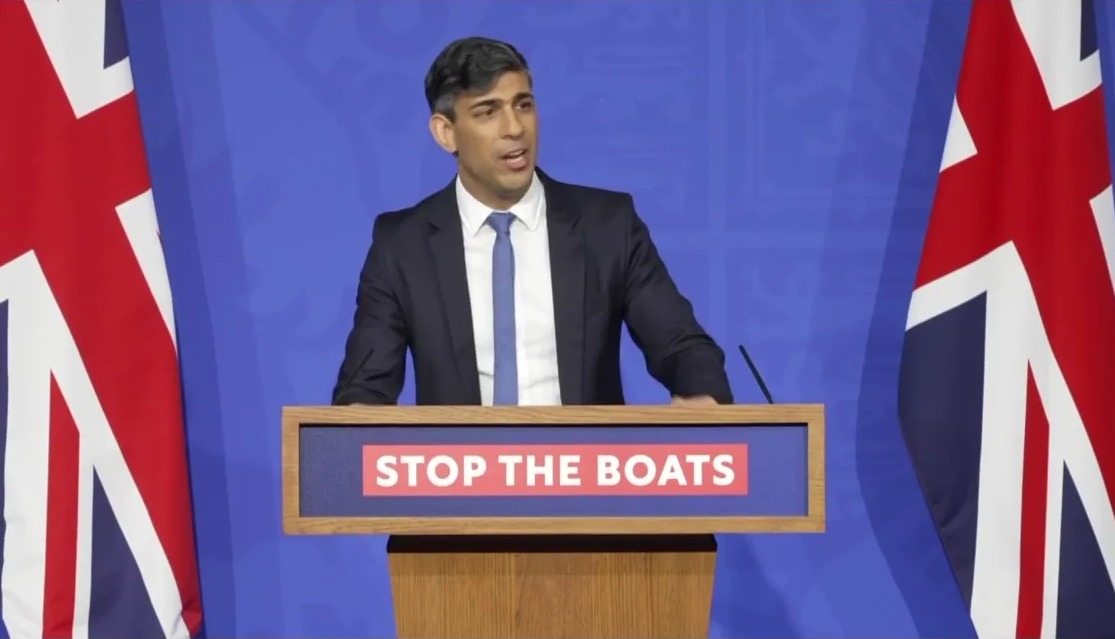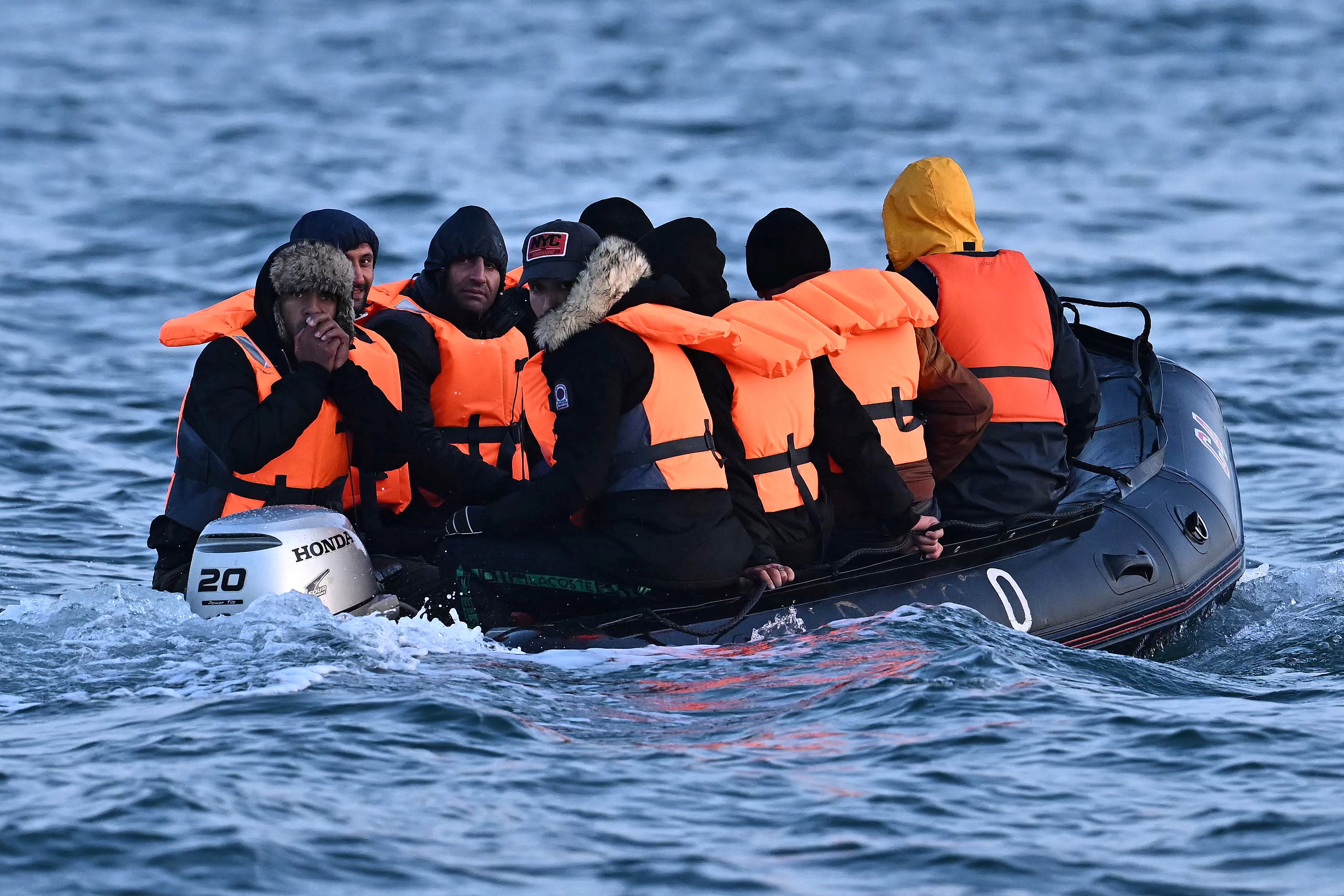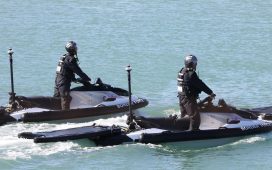RISHI Sunak today revealed that an airfield and planes are on standby to remove illegal immigrants to Rwanda – vowing: “No ifs, no buts – these flights are going.”
The PM said the first deportations would happen within “10 to 12 weeks” as he demanded stubborn peers drop their opposition.
Speaking at a Downing Street press conference, he confirmed Parliament will sit throughout the night if that is what it takes to get the flagship scheme approved today.
Mr Sunak said: “
The House of Lords has blocked the legislation by repeatedly amending the Bill, costing the Government three weeks of delay.
The wrangling has even forced Mr Sunak to ditch his spring deadline for getting flights to Kigali off the ground.
But he vowed to keep Parliament sitting late into the night today if necessary to pass the legislation, which seeks to make the plan legally watertight.
The PM said his patience with those blocking the Bill had “run thin”, adding: “No more prevarication, no more delay. We will sit there and vote until it’s done.”
Ahead of this morning’s press conference, Mr Sunak summoned a meeting of the Illegal Migrations Operations Committee in No10.
Focusing minds he told officials: “This bill sends a clear message; if you come here illegally, you won’t be able to stay.”
The Bill seeks to overcome the objections of the Supreme Court by forcing judges to deem Rwanda as a safe country for asylum seekers.
It allows ministers to ignore last-minute wrecking injunctions from the European Court of Human Rights.
Last week, peers amended the Bill to include an exemption for Afghan nationals who assisted British troops, as well as a provision meaning Rwanda cannot be treated as safe unless it is deemed so by an independent monitoring body.
When will the Rwanda Bill pass?
RISHI Sunak will urge peers to back his flagship Rwanda Bill in a press conference this morning.
It comes ahead what is expected the be the latest parliamentary showdown over the legislation.
The Bill, with two Lords amendments attached, will return to the House of Commons this afternoon.
It will be voted upon by MPs before moving to the Lords later in the day.
If peers decide to back down, then the Bill will pass but they could hold out for more rounds of ping pong.
The Prime Minister warned last week he will keep Parliament sitting late into the night if necessary.
Government sources believe the Rwanda Bill will go through today.
MPs are expected to vote to overturn those changes this afternoon before sending the Bill back to the House of Lords.
The “parliamentary ping pong” – the process whereby the Bill is batted between the Commons and the Lords – will continue until they can agree the final wording.
Asked about the amendments pushed by peers on the independent monitoring of the safety of Rwanda, Foreign Office Minister Andrew Mitchell insisted it was not necessary.
He also accused peers of engaging in discussions that “border on racism” when it comes to the judicial arrangements in the East African nation.
He told the BBC: “Some of the discussions that have gone on in the Lords about the judicial arrangements, the legal arrangements within Rwanda, have been patronising. And in my view, border on racism.
“So we don’t think it’s necessary to have that amendment either and that the necessary structures are in place to ensure that the scheme works properly and fairly.”
He even said that “if you look at the statistics, Kigali is actually safer than London”.
While Labour and Lib Dem critics argue the Bill is too tough, some Tory right-wingers do not believe it is strong enough.
Former Home Secretary Suella Braverman today said the plan had “too many loopholes” letting asylum seekers launch court challenges.
She said the legislation would not have the “deterrent effect that is necessary to break the people smuggling gangs, to send the message to the illegal migrants that it’s not worth getting on a dinghy in the first place because you’re not going to get a life in the UK”.
What is the Rwanda plan – and what’s been the hold up?
What is the Rwanda plan?
Under the plan, anyone who arrives in Britain illegally will be deported to Rwanda, a country in eastern Africa.
The government believes the threat of being removed to Rwanda will deter migrants from making the dangerous Channel crossing in small boats.
Once in Rwanda, their asylum claims will be processed but there is no route back to the UK, save for some exceptional circumstances such as individual safety concerns. Britain will pay for migrants to start a new life in Rwanda.
What’s the hold up?
First announced by Boris Johnson in 2022, the scheme has been bogged down by relentless legal challenges.
The first flight was due to take off in summer 2022, but was blocked on the runway at the last minute by a European Court order.
Since then the legality of the plan has been contested in the courts, culminating in a Supreme Court judgement in November last year which said Rwanda was unsafe for asylum seekers.
What is Sunak doing?
To salvage the Rwanda plan from the Supreme Court’s scathing ruling, Rishi Sunak announced a two-pronged workaround.
First, he would sign a new treaty with Rwanda to beef up protections for asylum seekers that will be enshrined in law.
Second, he would introduce new legislation that would declare Rwanda a safe country.
It would mean courts, police and officials would have to treat it as safe unless there is a risk of individual and irreparable harm.
How long will that take?
The legislation has cleared the Commons but is now being held up in the House of Lords.
Rishi Sunak does not have a majority in the Lords, and peers are far more hostile to the plan.
They will likely send it back to the Commons with amendments watering down the scheme.
Such changes would be unconscionable to MPs who would strip out the measures and send it back.
This “ping-pong” will continue until either side – usually the unelected Lords – gives in and the Bill passes.
When will flights take off?
Mr Sunak wants to get the first flights sent to Rwanda by the spring.
But potential hurdles include more court battles launched by individual migrants either in UK courts or the European Court of Human Rights.
Mr Sunak has vowed to ignore any more orders by Strasbourg judges to ground planes, although individual appeals in domestic courts could prove tricky.
Sir Keir Starmer has said he will scrap the scheme if he is elected PM, even if it is working












